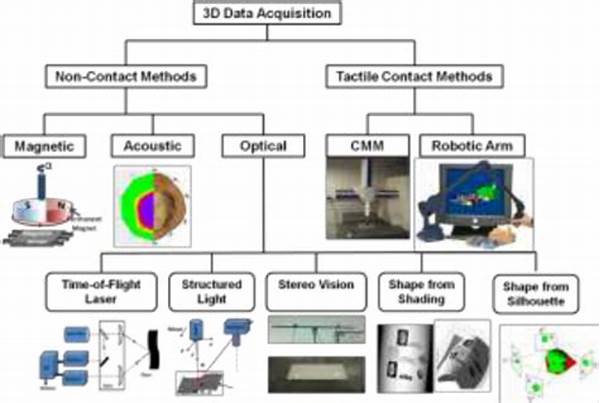Techniques for Fair Data Acquisition
In today’s data-driven world, acquiring data fairly has become imperative not only for ethical compliance but also for ensuring strategic advantages in business and research. Fair data acquisition refers to the practices of collecting data responsibly, ensuring transparency, and safeguarding personal information. Organizations often find themselves caught between leveraging vast data resources and adhering to ethical standards. This dilemma highlights the need for understanding techniques for fair data acquisition, which can not only enhance trustworthiness but also increase operational efficiency.
Let’s think of fair data acquisition as the “gold standard” of data collection. Just like in mining, where the process is as crucial as the treasure itself, acquiring data fairly requires commitment, understanding, and respect for all stakeholders involved. In this digital gold rush, those who master these techniques gain both social license and competitive advantage, setting themselves apart as smart digital miners who care about their communities.
Moreover, embracing these techniques allows organizations to foster better relationships with their customers and collaborators, building an environment where data is not just a currency but a trust bond. In essence, the principles of fairness, transparency, and accountability can transform mundane data interactions into valuable connections. A story worth sharing is about how one startup included fairness in its data collection process, gaining widespread praise and increased customer loyalty as a result. This tale teaches us that smart, fair practices today will bear fruit tomorrow in terms of sustained growth and reputation.
Fair Practices in Data Acquisition
As we delve deeper into the world of data, “techniques for fair data acquisition” become indispensable in shaping the future of how businesses and researchers engage with information. Learning these techniques not only provides a competitive edge but also aligns organizational goals with societal expectations, ensuring a harmonious and progressive data ecosystem.
—Understanding Fairness in Data Collection
In the age of digital renaissance, understanding what constitutes fairness in data collection is crucial. It begins with informed consent, ensuring that individuals whose data is being collected are fully aware and give express permission. This is a cornerstone of fair data acquisition, ensuring that there are no surprises on the part of the data providers.
Moreover, transparency about how the data will be used, stored, and safeguarded is critical. This means clear, jargon-free communication with stakeholders, setting expectations, and maintaining open channels for addressing concerns. Such techniques for fair data acquisition not only protect the data subjects but also bring ethical clarity to the data handlers, preserving organizational integrity.
Organizations should also strive to minimize data bias by employing diverse datasets and robust, unbiased analytical tools. Data bias often perpetuates systemic inequality, which is why techniques for fair data acquisition include rigorous evaluations to identify and eliminate such biases, promoting fairness and equity in data interpretations and applications.
Effective Implementation Strategies
Knowing the theory of fair data acquisition is only half the battle; execution is where the real challenge lies. Implementing these techniques requires a strategic approach, integrating fairness into the core processes of data handling, from collection to analysis and beyond.
Developing a Fair Data Culture
Creating an organizational culture that prioritizes data fairness involves training staff on ethical standards and best practices. Regular workshops, up-to-date policy guidelines, and an emphasis on accountability will ensure the entire organization contributes to this objective.
Moreover, employing technology solutions that automatically enforce compliance can ease this transition. Techniques for fair data acquisition should therefore be seen as part of a broader organizational shift towards conscious and responsible data stewardship.
The Business Effect of Fair Data Techniques
Adopting techniques for fair data acquisition may have an immediate cost, but the long-term financial benefits are substantial. Ethical data practices enhance brand reputation, fostering customer trust and loyalty.
Beyond reputation, fair data acquisition techniques streamline operational processes, reducing conflicts and legal entanglements, saving time and resources. For instance, companies with robust data fairness practices face fewer regulatory fines, and smoother operation leads to higher productivity and innovation, feeding positively into the company’s bottom line.
Tags
Open Discussion: Fair Data in Everyday Practices
Envision a world where fair data practices are embedded into every organization’s DNA. Imagine how customer dynamics would transform, with businesses communicating clearly why specific data points are essential and how they contribute to service enhancements. Individuals would feel more empowered and respected, knowing that their privacy is prioritized.
Discussions around fair data practices often reveal a strong need for collaboration across industries. Sharing best practices and learning from both successes and failures is essential. Techniques for fair data acquisition should not be proprietary secrets but openly endorsed strategies that gradually become standard practice.
Thus, participating in open forums, workshops, or online platforms could significantly contribute to the democratization of fair data practices. After all, achieving a fair data ecosystem is a communal effort that transcends individual organizations, offering collective benefits that shape a balanced and sustainable digital future.

